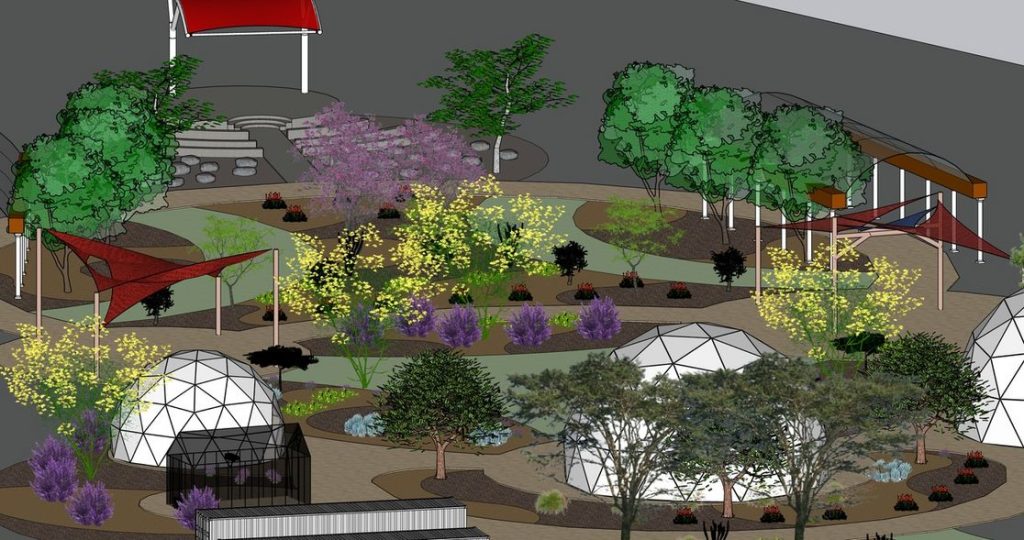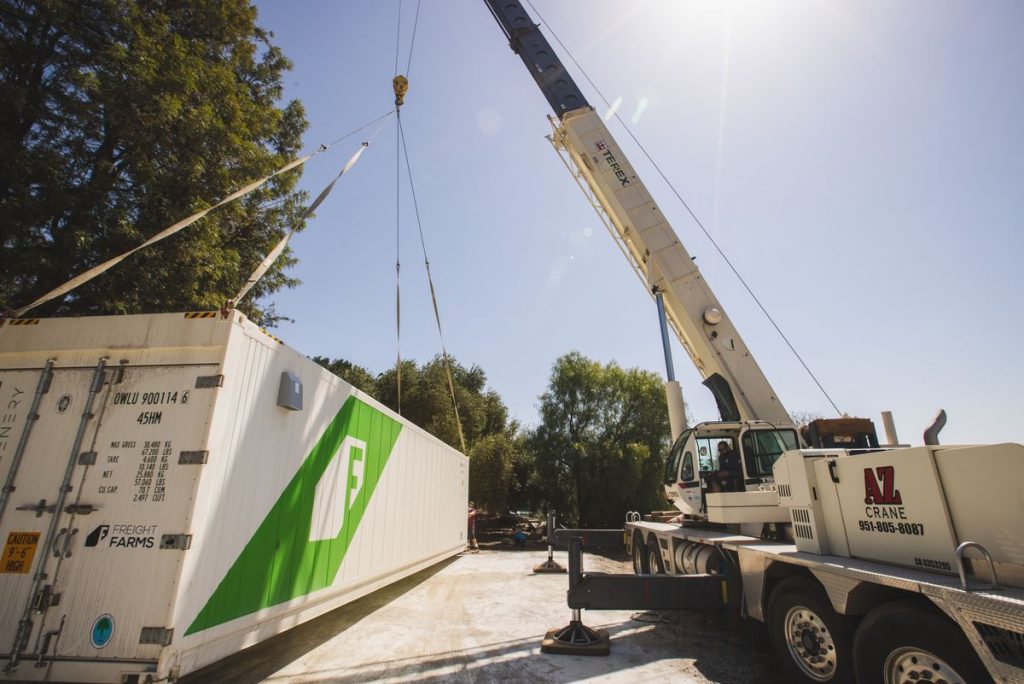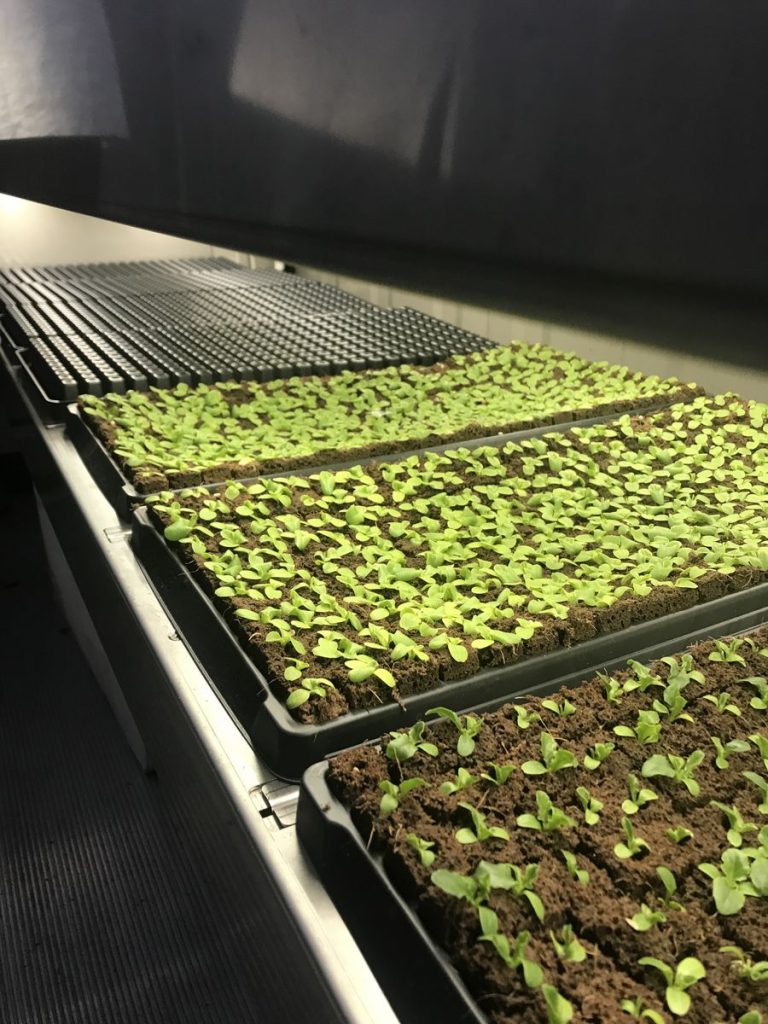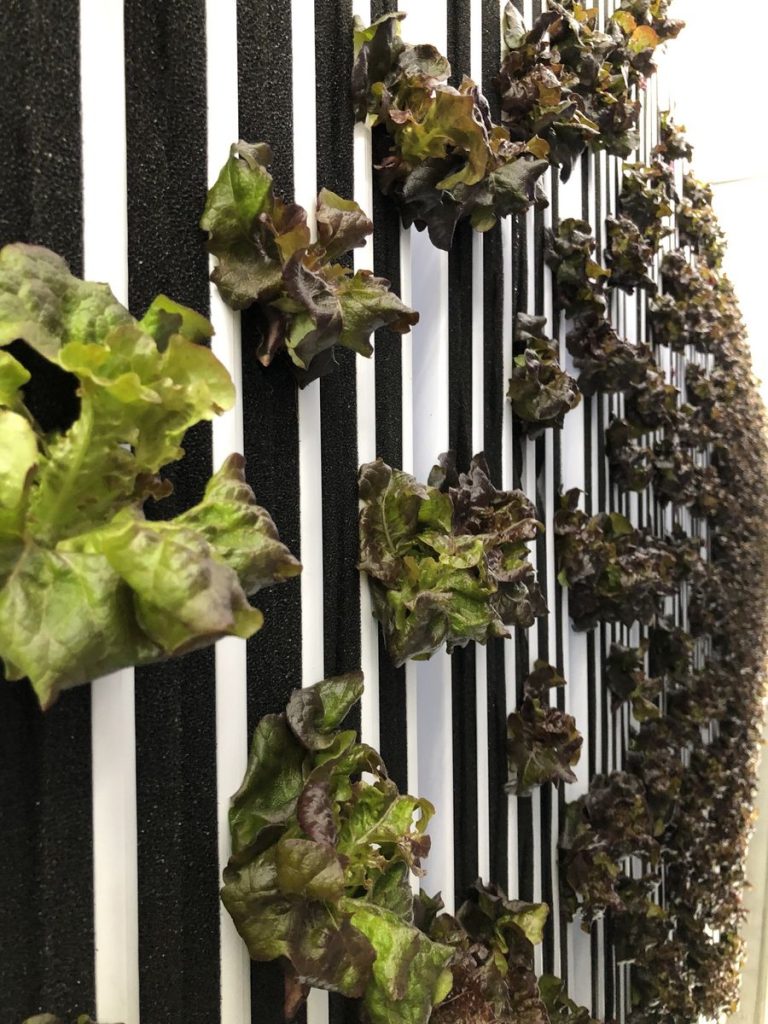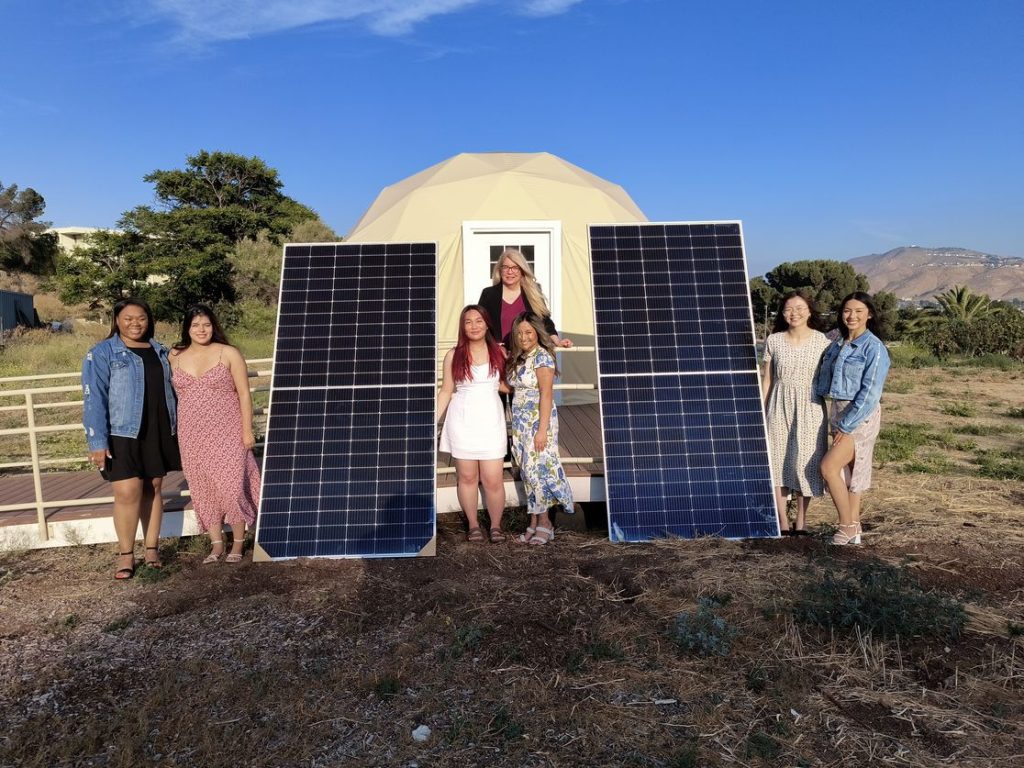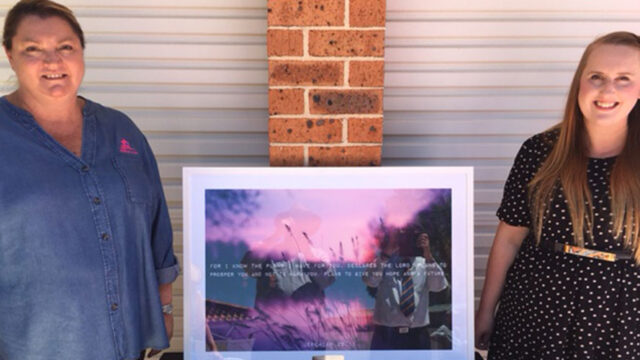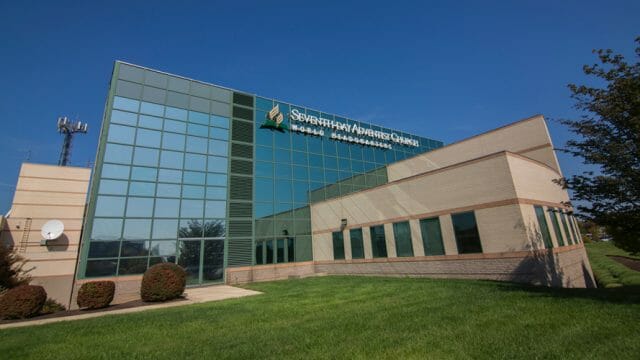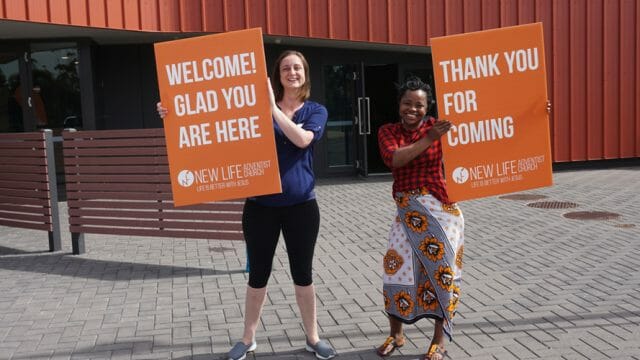The school lands a US$3 million federal grant for a variety of initiatives and programs.
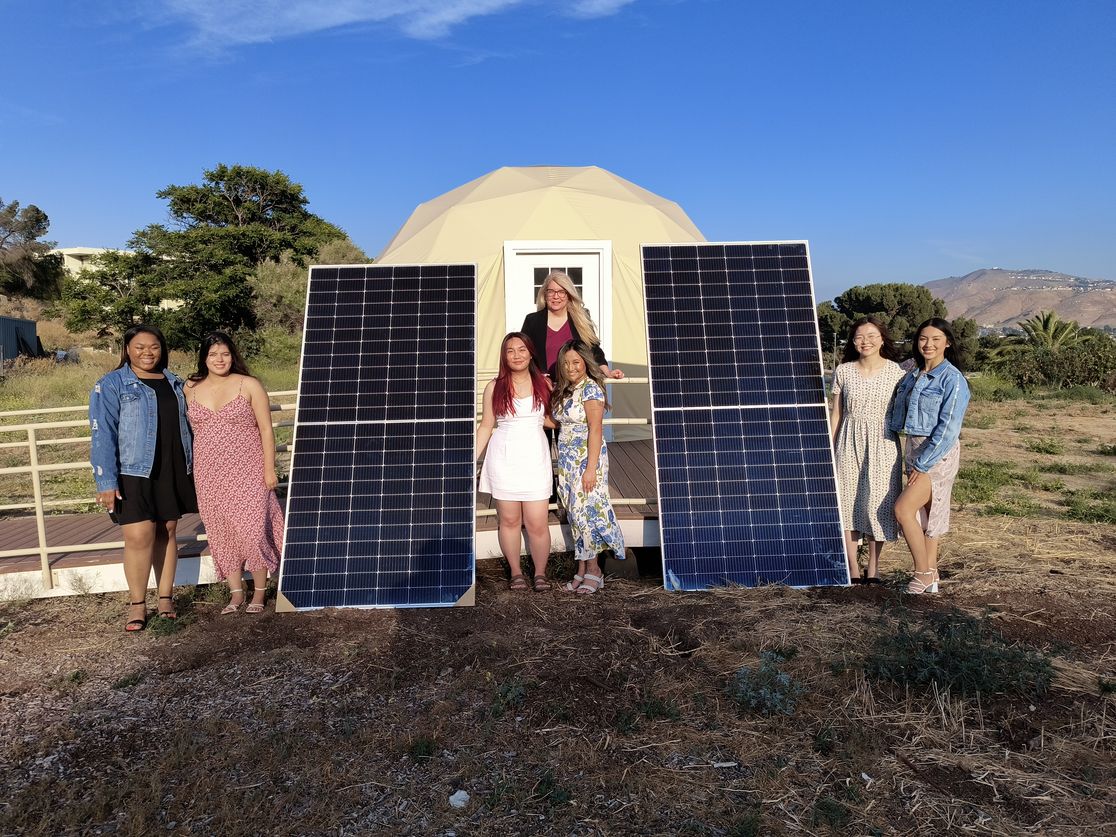
It was welcome and exciting news. On October 1, La Sierra University received notice of its fourth Title V grant from the U.S. Department of Education, this one for $3 million. The funds will be used to support the university’s rollout of new sustainability programs with a particular focus on serving marginalized students. In the near term it will help underwrite start-up activities for some of the first classes next spring and a full program next fall in a Bachelor of Arts degree in sustainability and society.
The grant is the latest in a string of developments occurring over the past two years related to the university’s segue into the sustainability field, a market that is rapidly expanding and in need of qualified workers. Toward moving the university into this arena, La Sierra in 2022 began developing a sustainability park complete with an off-grid experimental geodesic dome, greenhouse, and two environmentally controlled and technologically outfitted shipping containers for Controlled Environment Agriculture (CEA) developed by Freight Farms urban farming company.
In coordination with the park development, the university in May approved the design of three new degrees related to sustainability and urban agriculture and opened the programs for future enrollment. Operating under the Sustainability Studies Program Pathways, two Bachelor of Science degrees, in urban plant agriculture and sustainable agriculture entrepreneurship, and the Bachelor of Arts in sustainability and society were created with a mission that correlates with the United Nations Sustainable Development Goals focusing on environmental justice, critical thinking skills, and sustainable solutions for local and global communities. Program goals include “creating graduates who are prepared to solve real-world problems in the industries of agriculture, food science, global studies, agricultural entrepreneurship, and sustainability science,” according to an academic bulletin summary.
For La Sierra University, the new programming with its environmental, societal, and science-focused research and career opportunities falls in line with a directive of a higher nature — God’s commission to humanity to function as stewards of His created world and to pursue justice for the earth’s peoples.
The program expansion “blends so well with our mission to be stewards of the gifts God has given us and to function as an instrument of justice and service to others, while pragmatically meeting the needs of employers and of students in establishing career pathways,” April Summitt, La Sierra’s provost, said. Summitt, an author of several books who holds a doctorate in U.S-Middle East relations, is also a scholar on the histories of rivers and water access. She has presented internationally on these topics and fielded interviews by national media. In 2013 the University Press of Colorado published her book, Contested Waters: An Environmental History of the Colorado River, which led to an interview on C-SPAN Book TV. In 2018 Summitt lent her expertise on the history of the Colorado River to a segment of the PBS televisions series, “10 Modern Marvels that Changed America.”
Summitt has been a driving force behind the recent sustainability effort at La Sierra University. She has called for greater interdisciplinary academic collaboration since her arrival in 2013 to head the new Division of General Education and then as dean of La Sierra’s College of Arts & Sciences beginning in 2016. She began her tenure as provost in 2020 and will continue to help shepherd sustainability program development.
The field of sustainability research and careers is inherently multi-disciplinary due to the complex nature of local and global environmental challenges. As such, La Sierra’s sustainability programs seek to incorporate interdisciplinary studies from the natural and social sciences, global studies, and agricultural studies. Summitt’s interests in environmental and sustainability issues is connected with her interdisciplinary research on water rights histories and is also informed by her past experiences as a faculty member at Arizona State University, where she was involved in the development of the nation’s first School of Sustainability in 2006.
During the 2023-24 school year, La Sierra will use the latest round of Title V grant funds to hire faculty to teach classes in the new sustainability and society BA program, as well as continue to develop the two other degree programs under the Sustainability Studies Program Pathways umbrella. The new BA program’s major classes will include Introduction to Growing Food Sustainably; Water Management in Growing Food; Human and Population Geography; Critical Analysis; and Global Poverty, among others.
The programming actions are in concert with industry trends. An assessment prepared by Hanover Research for the sustainability and society degree shows a trend in demand for continued programs in sustainability with labor demand for related jobs on the rise as industries move toward sustainable business models. Researchers discovered that 80 percent of U.S. companies have sustainability initiatives in place. Studies and reports by other organizations reveal similar results. According to the World Economic Forum’s Future of Jobs Report 2023, “hiring for green roles consistently outpaced the overall hiring rate globally four years in a row.”
With a population of Hispanic students that typically compose nearly half of its student body, La Sierra qualifies as a federal Hispanic-Serving Institution or HIS, which is among the requirements of Title V grant applicants. Since 2016, La Sierra has received a total of $11.6 million in Title V grant funds, which have been used to create educational pathways in STEM subjects and support services that help students achieve overall success in college.
This fall’s round of Title V funds will also help build out the sustainability park’s geodesic dome with glass to conduct teaching and research in a low-infrastructure environment. Recent park developments include the installation in July of an off-grid solar system to power the temperature control in a smaller experimental dome. The system was jointly gifted to the university by the senior classes of 2022 and 2023.
Going forward, Summitt will seek funding for building out the park, to include an outdoor amphitheater that will enhance community appeal. This year she has also invited a former colleague from Arizona State to give a presentation on environmental ethics as part of a speaker series under the sustainability program.
“My proximity to that first School of Sustainability sparked my interest in seeing what we might be able to do here at La Sierra one day,” Summitt said. She noted that interest around campus picked up through the student Enactus team’s hydroponics agriculture programs utilizing the Freight Farms shipping container and the development of Title V-funded STEM programs that incorporate sustainability and ecology. “As time went by, there were enough people voicing the same interest, and a group of people talking about what we could build out of that, what else we could do. It really was an amazing convergence,” she said.
“Students today are more than ever wanting to solve some of the serious problems that they see around them, like climate change and the impact of global warming, homelessness, the lack of certain resources and so forth,” Summitt said. “And the industries and businesses adding officers of sustainability show how prevalent the realization is about this emerging sector.
“Making a significant and lasting impact that meets societal needs and builds up individual lives while strengthening our earthly environment is part of our calling as Christians,” she said. “It’s exciting to be able to bring something like this to students today because more than ever they want to have a career where they make a difference in the world.”
The original version of this story was posted by La Sierra University.


